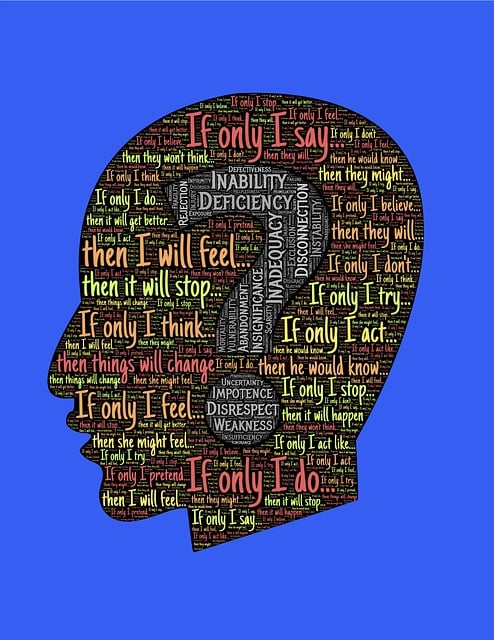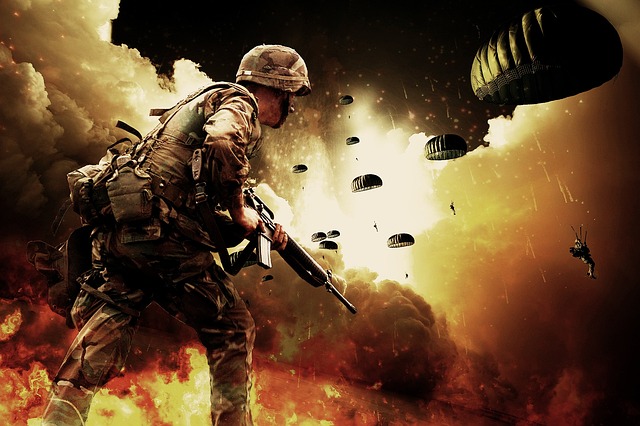Dreams of war often leave us feeling unsettled and confused. But what if these nocturnal battles held hidden meanings waiting to be unraveled? Dive into the enigma of war dreams and discover their fascinating interpretations.
1. Unraveling the Symbolism: Understanding the Hidden Meanings behind Dreams of War
When we close our eyes, sometimes our subconscious takes us to the battleground of our dreams, where wars unfold in the most unexpected ways. These dreams of war may leave us bewildered and curious about their significance. What could they possibly mean? In this post, we embark on a journey to decipher the enigmatic symbolism behind these nighttime battles, shedding light on the deeper meanings hidden within.
1. Emotions Amplified: Dreams of war often represent the inner turmoil we experience in our waking lives. The chaos and violence depicted in these dreams are a metaphor for our own internal struggles, whether it be unresolved conflicts, anger, fear, or stress. It is our mind’s way of processing and amplifying these emotions, urging us to confront and find resolutions for them.
2. Power Dynamics and Control: The battlegrounds of our dreams may also reflect power dynamics at play in our lives. In these dreams, we may find ourselves fighting against known or unknown adversaries, struggling to assert control or regain power in certain situations. They serve as a reminder to examine the power dynamics in our waking lives and determine whether we feel empowered or disempowered.
3. Symbolic Representations: Dreams of war can also contain symbolic representations. Weapons, uniforms, and war equipment often symbolize our defenses and protection mechanisms. The outcome of battles, whether victorious or defeated, can reflect our own confidence, self-esteem, and resilience. Exploring these symbols in our dreams can provide valuable insights into our own character and how we navigate the challenges we face.

2. The Psychological Impact: Exploring the Influence of Personal Experiences on War-themed Dreams
War-themed dreams have long fascinated psychologists and dream researchers, offering a glimpse into the intricate workings of the human mind during sleep. In this post, we delve deep into the puzzling world of these nighttime battles and explore how personal experiences can shape their meaning.
Unraveling the Symbolism
When we dream about war, our subconscious mind may be using this powerful symbol to convey a variety of meanings. These dreams can often represent internal conflicts within ourselves or external struggles in our waking lives. The symbolism of war in dreams can be multi-faceted, and its interpretation varies from person to person.
Here are some possible interpretations of common war-themed dream elements:
- Battlefield: Represents the challenges or conflicts we face in our lives.
- Weapons: Symbolize the tools or strategies we use to defend ourselves or attack problems.
- Uniforms: Reflect our desire for a sense of identity or belonging.
- Victory: Signifies overcoming obstacles or achieving goals.
- Defeat: Suggests feelings of powerlessness or fear of failure.
Personal Experiences and Dream Interpretation
One fascinating aspect of war-themed dreams is their connection to personal experiences. Our individual encounters with war or violence, whether direct or indirect, can significantly influence the content and emotional tone of these dreams. For example:
- Individuals who have served in the military may have war-themed dreams that reflect their experiences on the battlefield or memories of comrades.
- People who have lived through conflict zones might have dreams depicting the chaos and trauma they witnessed.
- Those who have lost loved ones in wars may experience dreams that reflect their grief, fear, or unresolved emotions.
Understanding the influence of personal experiences on war-themed dreams requires self-reflection and careful exploration of one’s past. By recognizing how our individual journeys intersect with these nighttime battles, we gain valuable insights into our psyche.

3. Unlocking the Subconscious: How Dreams of War Reflect Inner Conflict and Emotional Struggles
Exploring the depths of our minds through dreams can be a fascinating journey, allowing us to uncover hidden meanings and untangled emotions. One common theme that often surfaces is the presence of war in our dreams. Dreaming of war is not simply a reflection of external conflicts or violence witnessed in our daily lives, it is a powerful symbol that delves deeper into our inner struggles and emotional turmoils.
Battles on the dream battlegrounds symbolize unresolved issues that lie deep within us, waiting to be addressed. These dreams often act as a mirror, reflecting the emotional clashes and conflicts we may be experiencing in our waking lives. They expose the turmoil we harbor, whether it be conflicts in relationships, dilemmas in decision-making, or the turmoil caused by internal doubts and anxieties.
As we try to decipher the meaning behind dreams of war, it is crucial to pay attention to the specific details that arise within the dream, as they hold significant clues about the internal conflicts we are facing. Recurring symbols like uniforms, weapons, or destruction may represent aspects of our personalities or situations that need healing or resolution.
By unraveling the symbolisms and emotions associated with these dreams, we gain a deeper understanding of ourselves. It is an opportunity to address the root causes of our inner conflicts and find inner peace. It is important to approach these dreams with empathy and introspection, allowing ourselves the space to explore the deeper layers of our subconscious and make sense of the battles that play out in our minds each night.

4. Reliving History: Analyzing the Connection between Historical Knowledge and War-related Dreams
As we close our eyes at night, our minds often dive into a realm where reality mingles with the subconscious. Dreams, mysterious and unpredictable, hold the power to transport us to uncharted territories. One such terrain is the battlefield, where echoes of past conflicts reverberate through the hazy confines of our subconscious. These war-related dreams, surreal and vivid, have long intrigued both psychologists and historians.
Intrinsically tied to our historical knowledge, these dreams unveil a hidden connection between our waking thoughts and the echoes of the past. They serve as a mirror, reflecting the impact that history has on our psyche. Such dreams can be seen as a subconscious attempt to process the weight of historical events, inviting us to reconstruct the narratives of war in our minds.
Through the analysis of war-related dreams, we unveil a landscape rich in symbolism and metaphors. The interpretation of these dreams presents an opportunity to decode the profound emotional and psychological implications they carry. Perhaps these dreams are a manifestation of the human desire for peace, a yearning to understand and learn from the mistakes of the past. Join us as we embark on a journey to unravel the enigmatic world of war-related dreams, seeking to decipher their hidden messages and uncover the profound insights they hold within.

5. The Role of Fear and Anxiety: Examining the Impact of Stressors on Disturbing Nighttime Battles
As our mind ventures into the realm of dreams, it often unveils a landscape that can be both intriguing and perplexing. One common and captivating theme that captures our imagination is that of nighttime battles. These dream scenarios, often laden with intense emotions and adrenaline, leave us contemplating their significance and impact on our subconscious mind.
Fear and anxiety play a pivotal role in shaping these unsettling dreams of war. They serve as powerful stressors that immerse us in a world of conflict and turmoil while we sleep. It is these stressors that trigger our fight or flight instincts, transforming our dreams into battlegrounds of chaos and struggle. By examining the impact of these stressors on our subconscious, we can gain insight into the deeper meaning of these nighttime battles.
Understanding the Connections:
- Emotional turbulence: Dreams of war often reflect our inner conflict and emotional upheaval, depicting unresolved issues and anxieties in our waking lives.
- Social and cultural influences: Our dreams can be influenced by external factors, such as the media or personal experiences, as they shape our perceptions of warfare and aggression.
- Symbols and metaphors: Nighttime battles may act as symbolic representations, metaphorically portraying power struggles, personal growth, or conflicts within relationships.
By delving deeper into the role of fear and anxiety in these disturbing dreams, we can unravel the subconscious messages they carry and gain a better understanding of our own thoughts and emotions.

6. Trauma and PTSD: Investigating the Relationship between War Dreams and Post-Traumatic Stress Disorder
Understanding the Link between War Dreams and Post-Traumatic Stress Disorder
When we close our eyes and enter the realm of dreams, our subconscious often takes us to places we may not expect. For some, this means experiencing intense war dreams, where the battlegrounds of one’s mind transform into chaotic battlefields. But what do these dreams truly signify? Are they just random images created by our brain, or do they hold a deeper meaning?
Researchers have long been intrigued by the connection between war dreams and post-traumatic stress disorder (PTSD), a psychiatric disorder that can develop in individuals who have experienced or witnessed traumatic events. While not all individuals who suffer from PTSD experience war dreams, studies suggest that there is a correlation between the two phenomena. In fact, war dreams can often serve as vivid reminders of the trauma endured, amplifying the distressing symptoms associated with PTSD.
- 1. A Reflection of Unresolved Trauma: War dreams can be manifestations of unresolved trauma buried within the subconscious mind. These dreams act as a nonverbal expression of the emotional pain and distress experienced during traumatic events, bringing them to the forefront of one’s consciousness.
- 2. Re-experiencing Traumatic Events: PTSD is characterized by intrusive thoughts and flashbacks of traumatic events. War dreams can be seen as a nocturnal continuation of this re-experiencing process, further exacerbating the distress and anxiety felt during waking hours.
- 3. Symbolic Representation: Dreams often employ symbols and metaphors to communicate complex emotions and experiences. War dreams may symbolize feelings of powerlessness, fear, or a need for control. Deciphering these symbols can provide valuable insight into the psychological mechanisms underlying PTSD.
Overall, understanding the relationship between war dreams and PTSD is a crucial step towards unraveling the mysteries of the human mind. By delving deep into the realm of dreams, we can gain further insight into the lasting impact of trauma, offering hope for effective therapeutic interventions and the relief of suffering.

7. Coping Strategies and Interpretation Techniques: Navigating the Challenges of Nightmares about War
Coping Strategies and Interpretation Techniques
When it comes to dealing with nightmares about war, it can be an overwhelming experience. These vivid dreams can leave us feeling unsettled, anxious, and even scared to sleep again. However, there are coping strategies and interpretation techniques that can help us navigate through these challenges and find some peace of mind.
1. Validate Your Emotions: It’s important to remember that nightmares of war can stir up intense emotions. Acknowledge and validate these feelings without judgment. Allow yourself to process them during your waking hours and seek support from loved ones or a therapist if needed.
2. Create a Peaceful Bedtime Routine: Incorporate calming activities into your nighttime routine to create a soothing atmosphere before sleep. Consider listening to relaxing music, practicing deep breathing exercises, or reading a light and positive book. By establishing a peaceful environment, you can help reduce the likelihood of distressing dreams.
3. Keep a Dream Journal: Writing down your dreams can provide valuable insight into their meaning. Keep a journal next to your bed and record your dreams as soon as you wake up. Look for recurring patterns, symbols, or themes that may be present in your war-related nightmares. Reflecting upon these details might help you understand any possible deeper meanings.
4. Explore Symbolism: Nightmares about war often carry symbolic messages. Try to decipher the hidden symbolism in your dreams. For example, tanks might represent a feeling of being trapped or overwhelmed, while explosions could indicate a sense of instability in your waking life. Unraveling these symbols may provide valuable insights into your subconscious thoughts and emotions.
5. Seek Professional Help: If your nightmares about war persist and significantly impact your well-being, consider reaching out to a mental health professional experienced in dream analysis or trauma therapy. They can guide you through the interpretation process and provide you with personalized coping strategies to help you navigate the challenges of these unsettling dreams.
Remember, exploring coping strategies and interpretation techniques can assist you in finding peace when facing nightmares about war. By fostering a supportive and nurturing mindset, you can gradually cultivate a more restful sleep and a sense of empowerment in dealing with these unsettling dreams.

8. Finding Peace and Resolution: Practical Tips for Managing War-related Dreams and Enhancing Sleep Quality
War-related dreams can often be unsettling, leaving us feeling uneasy and disturbed upon waking. These dreams can be a reflection of our fears, anxieties, or even past experiences. Understanding the meaning behind these dreams and finding ways to manage them can bring about a sense of inner peace and improved sleep quality. Here are some practical tips to help you navigate the nighttime battles:
1. Deconstruct the Symbols:
War-related dreams often contain symbolic elements. Take some time to analyze the content of your dreams. What are the key symbols or recurring themes? Deciphering the underlying meanings can provide valuable insights into your subconscious mind and help you uncover any unresolved issues that need attention.
- – Document your dreams in a journal to identify patterns and symbols that commonly appear.
- – Research common interpretations of war-related symbols to gain a deeper understanding.
- – Consider seeking the guidance of a therapist or dream analyst to unlock the hidden messages.
2. Prioritize Relaxation:
Enhancing your sleep quality and reducing stress levels requires prioritizing relaxation techniques in your routine. These methods can help calm your mind before bed, making war-related dreams less likely to occur:
- - Engage in activities such as meditation, deep breathing exercises, or yoga to promote relaxation.
- – Create a soothing bedtime routine, avoiding stimulating activities, screens, or heavy meals close to bedtime.
- – Use calming essential oils or play soft, soothing music to create a serene sleep environment.
3. Engage in Emotional Healing:
War-related dreams can be reminders of unresolved emotional trauma. Taking steps towards emotional healing can alleviate the intensity of these dreams and promote overall well-being:
- – Seek therapeutic support to work through past traumas and develop coping mechanisms.
- – Practice self-care and engage in activities that bring you joy and help restore emotional balance.
- – Surround yourself with a support network of friends and loved ones who can provide understanding and encouragement.
By deciphering the meaning behind war-related dreams, prioritizing relaxation, and engaging in emotional healing, you can find peace within yourself and improve the quality of your sleep. Remember, dreams can serve as a powerful tool for self-discovery and growth if we are willing to explore them with an open mind.
As we unravel the enigma of dreams, the battles we fight in our sleep reveal hidden emotions and unresolved conflicts. So, next time you find yourself treading war-torn landscapes amidst slumber, remember, your dreams of war hold profound insights waiting to be discovered.





